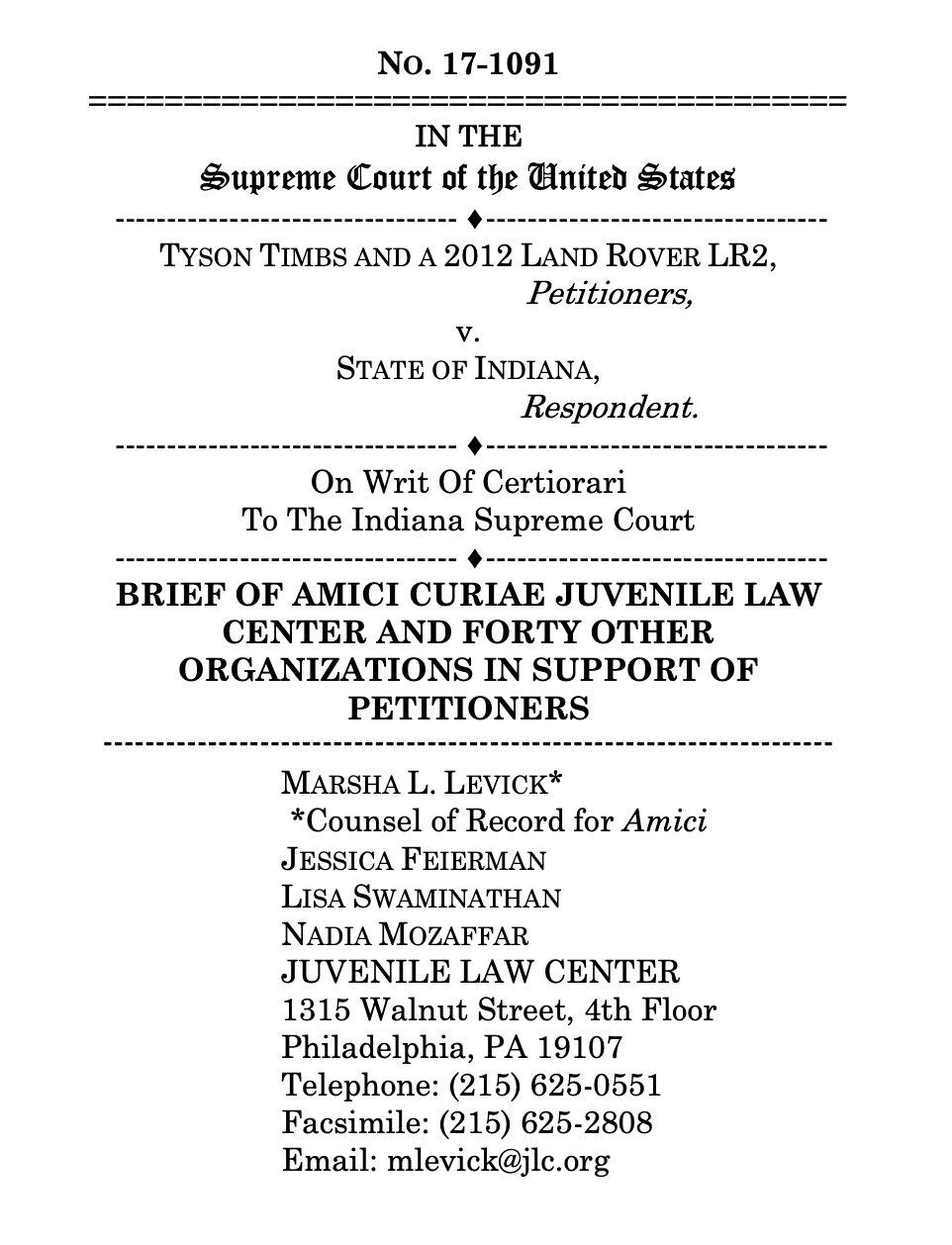
Summary of Argument
More than 50 years ago, this Court clearly established that children being questioned by police need “protection” in light of their “unequal footing” with interrogators. Gallegos v. Colorado, 370 U.S. 49, 54 (1962). The Court noted that an adolescent “is not equal to the police in knowledge and understanding” and will not know “how to protest his own interests” or get the benefit of his own constitutional rights during an interrogation. Id. The Court has also clarified that certain interrogation tactics, such as “‘paternal’ urgings” by officials, might sway adolescents into confessing, calling into question the trustworthiness of juvenile confessions. In re Gault, 387 U.S. 1, 51-52 (1967). Courts therefore must exercise “the greatest care” to ensure that juvenile confessions are voluntary. Id. at 55.
This Court’s caution that constitutional standards must be calibrated to take adolescence into account permeates its jurisprudence. Indeed, this Court has been clear that “criminal procedure laws that fail to take defendants’ youthfulness into account at all would be flawed.” Graham v. Florida, 560 U.S. 48, 76 (2010); see also Miller v. Alabama, 567 U.S. 460, 473-74 (2012); Roper v. Simmons, 543 U.S. 551, 569 (2005). This Court has grounded its conclusions that youth merit distinctive treatment under the law not only in “common sense,” but also in scientific research showing that teenagers are more impulsive, more susceptible to coercion, less mature, and more capable of change than adults. See J.D.B. v. North Carolina 564 U.S. 261, 272-73, 280 (2011); Graham, 560 U.S. at68-69; see also Miller, 567 U.S. at 471-72; Roper, 543 U.S. at 569-70. And it has recognized that these traits are relevant in the context of police interrogations, where youth “lack the experience, perspective, and judgment to . . . avoid choices that could be detrimental to them.” J.D.B., 564 U.S. at 272.
This precedent places beyond dispute that the voluntariness inquiry requires meaningful evaluation of a juvenile’s age and developmental characteristics. By failing to give any consideration to Brendan Dassey’s age—much less exercise the special care required by these cases—the Wisconsin Court of Appeals violated clearly established law.